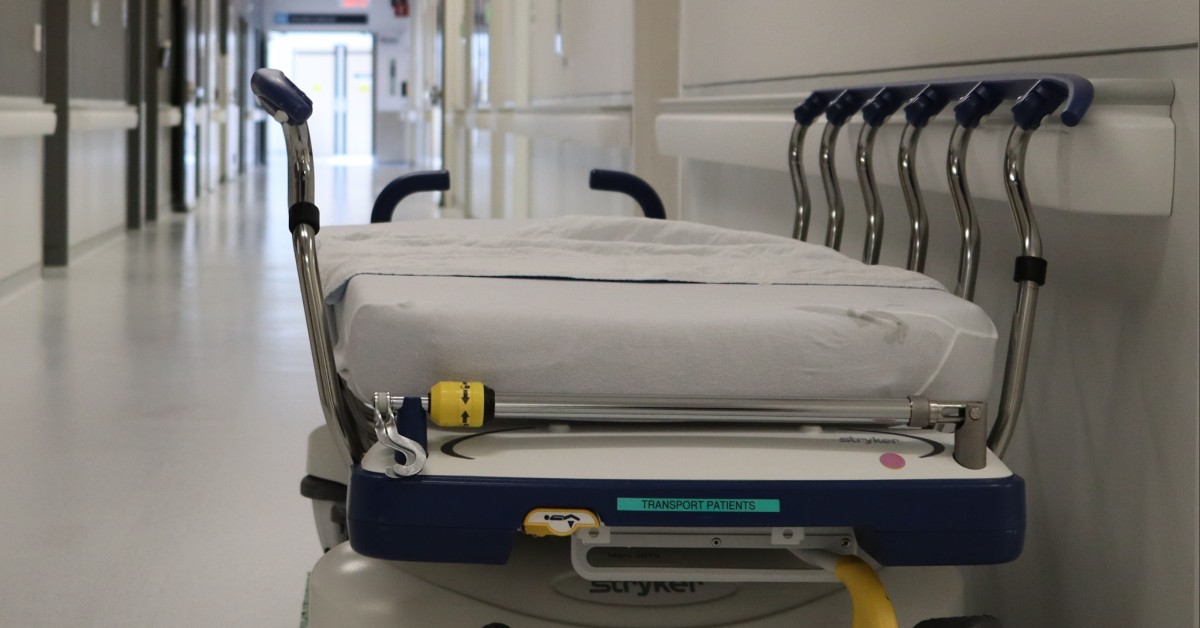
What Does a Family Nurse Practitioner Do?
Family nurse practitioners perform most of the same tasks as [...]

“The majority of patients today still die in hospitals,” according to Ruth Kleinpell, a professor of nursing at Rush University College of Nursing, even though “hospice care can provide patients and families with a better dying experience.” In a 2016 study, published in the journal BMJ Supportive and Palliative Care, Kleinpell advocates moving those nearing the end of their lives from hospitals to the more comfortable home-like setting of hospices. There they can receive care focused more on dying comfortably than on prolonging discomfort.
While nurses of all kinds are focused on quality-of-life issues for patients, the goal of hospice care nurses—also known as hospice care and palliative nurses—is to ensure that individuals benefit from the best possible quality of end-of-life care. That’s because hospice patients usually have no more than six months to live; hospice care patients may include those with cancer, heart disease, dementia, kidney failure, or chronic obstructive pulmonary disease. At this point, they’re no longer looking for a cure, but rather for comfort, pain management, and emotional support.
While it may be challenging—as well as emotionally draining and physically taxing—to help guide dying people through the final, potentially most painful days of their lives, as a hospice care nurse, you’ll have the chance to build connections with your patients and their loved ones. It’s not all tragedy, although tragedy is undoubtedly never far off.
Research shows, in fact, that hospice care can help improve patient experiences by:
Hospice care offers opportunities for nurses from registered nurses on up through advanced practice nurses and DNPs.
In this guide to becoming a hospice care nurse, we’ll cover:
The pros and cons of becoming a hospice care nurse
Kinds of hospice care nurse careers
The educational commitment to become a hospice care nurse
Licensure and accreditation for becoming a hospice care nurse
Further accreditation or education for hospice care nurses
Typical advancement path for hospice care nurses
Resources for becoming a hospice care nurse
Compensation: The average compensation for hospice care registered nurses is $69,270 per year, according to Glassdoor.
Benefits: Most hospice care nurses (71 percent) receive medical insurance, dental insurance (62 percent), and vision insurance (54 percent), while only 27 percent receive no benefits, according to salary-tracking website PayScale.
Job satisfaction: In a survey of 386 hospice care nurses, Payscale reported a job satisfaction level of 4.1 (on a 1-to-5 scale), a score Payscale classifies as “highly satisfied.”
Job security: The healthcare and social assistance sector is the fastest-growing industry in the US, according to the Bureau of Labor Statistics. The job rate for registered hospice care nurses is expected to increase by 19 percent by 2022.
Physical demands: You’ll be standing for hours at a time, lifting and carrying patients, and potentially traveling to conduct home visits to provide in-home hospice care. Like most nursing roles, hospice nursing is physically as well as emotionally draining.
The emotional toll of the work: Painful symptoms, discomfort, and dying will be your patients’ reality, and to some extent, your own as well. It can be challenging not to feel affected by your patients’ terminal illnesses. Getting to know patients’ loved ones and the sadness and stress they’re coping with can add up as well.
Working or being on call at all hours of the day: The job may demand putting hours in during evenings and on weekends and holidays.
Hospice nurses serve in a variety of roles, including:
Admissions nurse
Case manager
Visit nurse
Triage nurse
Hospital liaison
Hospice nurses typically work in the following settings:
Hospice center
Hospital
Nursing home
Patient’s home
According to Bureau of Labor Statistics, hospice care workers must:
Be compassionate, organized, responsible, and self-starters
Set clear boundaries between themselves and patients and their loved ones
Communicate complex topics, such as medical issues, to patients and their friends and family
Be team players as part of a larger hospice care team
At a minimum, RN hopefuls must complete a two-year associate’s degree in nursing. For more significant career growth potential down the line, completing additional education, such as a four-year Bachelor of Science in Nursing (BSN) or a two-year Master of Science in Nursing (MSN) may be worthwhile.
An associate’s degree will help you get your foot in the door, while a bachelor’s degree is usually key for attaining greater responsibility, managerial roles, and higher pay. An MSN helps candidates advance to specialized positions, such as nurse practitioner (NP). NPs earn $91,000 per year on average, and provide much of the same care that physicians provide. Your income should increase at every advance in level of education.
Online RN degrees for associate’s, bachelor’s, and master’s programs are also an option. There are accelerated BSN and accelerated MSN programs that deliver both degrees in five years. If you have an associate’s degree and are already an RN, you can get your BSN or MSN more quickly in an RN-to-BSN or RN-to-MSN program.
Licensure is required for RNs in all 50 states, DC, and U.S. territories. According to the Bureau of Labor Statistics, to become licensed, nurses must:
Nurses may also have to pass a criminal background check or meet other state-specific requirements.
Once the above requirements are met, most RNs who want to become hospice care specialists gain work experience for at least one to two years in an acute care setting, becoming familiar with health assessments, pain management, and taking vital signs, according to the Center for Hospice Care Southeast Connecticut.
Up next? the National Board for Certification of Hospice and Palliative Care Nurses (NBCHPN) offers six certifications to those hoping to specialize in hospice care nursing. Each has its own requirements:
To be certified as a hospice and palliative care nurse, for example, you must:
To move beyond entry-level nursing roles and progress professionally, nurses should plan on gaining experience, getting good performance reviews, and seeking out continuing education opportunities. Staying competitive, while also developing leadership, communication, and negotiation skills, can help nurses advance to roles with increasing responsibilities, including from assistant clinical nurse manager, charge nurse, or head nurse to more senior roles, such as assistant director or director of nursing, vice president of nursing, or chief nursing officer. Nurses can also use their expertise to transition into business roles, advising on marketing, consulting, policies, quality assurance, and more.
Since the 1980s, the Hospice and Palliative Nurses Association has served as the national professional organization for those specializing in hospice and palliative nursing. Check out the organization’s:
If nursing is a path you’re interested in pursuing, check out additional resources from our team here at Noodle.com to help you on your way to selecting a nursing program and beyond, including getting the most out of your degree.
Hospice care is not for everyone. Even by healthcare standards, caring for the dying is a stressful, draining profession. But the benefits of hospice are real. According to a National Institute of Health study led by Susan Miller of Brown University, hospice care exceeds hospital care in pain management, the number of hospitalizations, overall cost, and family satisfaction with end-of-life care. For those with the courage to face death daily, hospice nursing is undeniably a profession that makes a difference in people’s lives.
(Last Updated on February 26, 2024)
Questions or feedback? Email editor@noodle.com

Family nurse practitioners perform most of the same tasks as [...]

Health care systems require social workers to assist individual patients [...]

Education requirements for nurses in the U.S. are becoming more [...]

Licenced practical nurses (LPNs) deliver essential services to patients across [...]

The clinical practicum is essential to every psychiatric mental health [...]
Categorized as: Advanced Practice Nursing, Nursing & Healthcare